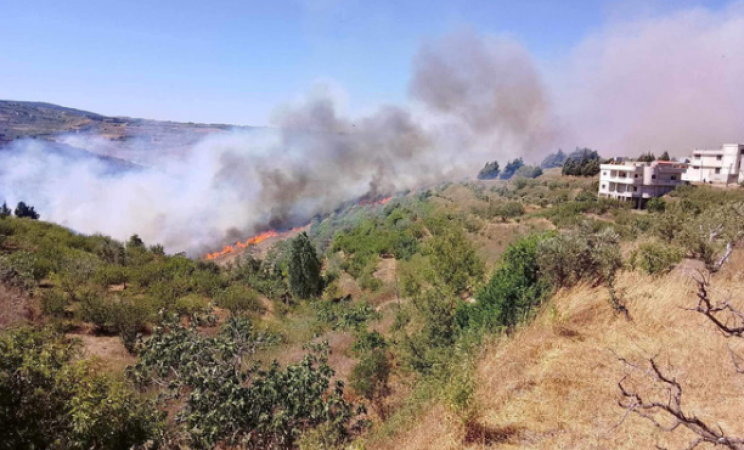
Damascus: As temperatures in some areas of the nation soared to 40 degrees Celsius on Tuesday, local civil defense officials reported that firefighters were battling to put out numerous wildfires raging throughout the central Syrian countryside.
Amjad Hammad, the director of the local forest protection center, told the state news agency SANA that a fire had started on public farmland in the Hama province in the country's center. Firefighting crews were attempting to prevent the fire from spreading to nearby areas.
The head of civil defense in that province told SANA that another was raging across agricultural zones and that civil defense teams were having difficulty containing it because of "the mountainous and rugged terrain."
Also Read: Four T-6C training aircraft are delivered by the US to Tunisia
Families from the village of Al-Marana fled their homes as the wildfire approached, according to local media Sham FM.
Tuesday's temperatures were up to six degrees Celsius above average nationwide, according to the state news agency, with strong gusts and "very hot clouds."
In the province of Homs, they reached 40C (104F), and in the capital Damascus, where frequent power outages have made it difficult for families to stay cool, they reached 39C.
Also Read: Israel's Latest Airstrikes on Syria Wound Two Soldiers
To compensate for the lack of air conditioning, one group of women in the capital frequently dipped their feet in cool water and charged tiny electric fans with portable batteries.
Also Read: UN: The world needs to get ready for more severe heatwaves
One of them, Mounira Wassouf, explained, "We move the couches here, pour water on the ground, and direct the fans toward the ground, then we feel like we are in the Maldives."
Among the suspected effects of climate change already affecting Syria are erratic rainfall and rising temperatures. In recent years, they have reduced Syria's wheat crop by about 75% from the roughly 4 million tons per year it was before the war.